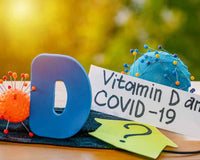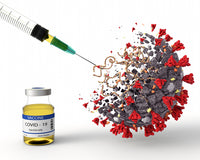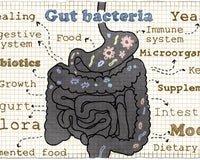Did you know that getting just 10 minutes of sunshine (ultraviolet B, or UVB) per day helps the body create approximately 10,000 IU of vitamin D naturally?
Thant why individuals who tend to go on 10-15 minutes walk on their lunch come back feeling good, ready to perform.
Our skin produces a molecule, derived from cholesterol, called 7-dehydrocholesterol.
When ultraviolet light hits our skin, this molecule can be converted into cholecalciferol (vitamin D3).
This nutrient is necessary for the health of your bones, as well as overall health.
However, during the winter months of November through February, and if you live north of Atlanta, there won’t be enough UVB rays to penetrate through the atmosphere and help your skin generate this vital nutrient.
So is there something you can do? Luckily, vitamin D3 can also come as a preformed vitamin in our diet or through supplementation.
And considering that three-quarters of teens and adults in the United States are deficient in vitamin D, as well as 1 billion people worldwide, this is where supplemental vitamin D can really help.

Natural dietary sources of vitamin D are few (e.g. fatty fish, eggs), and fortified dietary sources such as milk, orange juice and cereal provide minimal amounts of vitamin D.
This is why vitamin D is one of the most common nutrient gaps and also one of the easiest to address via supplementation.
Why is vitamin D important?
Vitamin D is a fat-soluble vitamin that regulates bone growth and mineralization and plays an important role in ensuring the muscles, heart, lungs, and brain function properly.
Vitamin D signaling affects nearly every cell and has also been shown to support immune function.
Vitamin D is not only an essential vitamin but also acts as a hormone in the body to fight them Covid-19 virus.
Protecting yourself from infections and viruses
If your engine (immune system) is not efficient, it will not be strong enough to fight infections and viruses.
Viruses attack cells that are under oxidative stress and reduce your weakness.
Vitamin D regulates and boosts the immune response by up-regulating specific genes.
People who have chronic inflammation are more likely to be….. Why? Chronic inflammation distracts the immune system from fighting viruses.
Reduces the risk of colds/flus.
Ideal for elderly patients or those with low levels of Vitamin D.
Vitamin D that you obtain from the sun, food, beverage, or supplements must be first activated by the liver which converts the vitamin D to 25-hydroxyvitamin D (25(OH)D), also known as calcidiol.
It is then converted by the kidneys and target tissues in the body to the biologically active form 1,25-dihydroxyvitamin D (1,25(OH)2D), also known as calcitriol.
2 Calcitriol is the active, hormone form, which supports a variety of physiological functions, including helping the body regulate levels of calcium and phosphorus, as well as mineralize bone.
Vitamin D Deficiency
What does it mean to be deficient in vitamin D? Measuring serum concentrations of 25(OH)D rather than 1,25(OH)2D is a better indicator of vitamin D status in the body due to its longer half life.
Certain groups define vitamin D deficiency as 25(OH)D level less than 20 ng/mL (50 nmol/L).
Recent research discovered a correlation between vitamin D deficiency and a higher risk of COVID-19.
Now, another new study has found the same — noting that more than 80 percent of people with COVID-19 didn’t have adequate levels of the “sunshine vitamin” in their blood.
Those at Risk Due Vitamin D Deficiency:
- Adults over 65
- Vegetarians
- Individuals with darker pigmentation
- Overweight/obesity
- Those with certain medical conditions
- Those who take certain medications
- Those who have limited sun exposure
How To Know If You Have Vitamin D Deficiency?
Measuring your vitamin D levels via a blood test is the only way to definitively know if you’re getting enough of this nutrient.
With a 25(OH)D blood test from your healthcare practitioner, you will know your vitamin D levels and whether you need to take a supplement.
Optimal levels of vitamin D vary according to different scientific organizations.
For example, for adults the Vitamin D Council recommends daily supplementation with 5,000 IU of vitamin D3 when you cannot get enough sun to achieve a status between 40-60 ng/ml.
Whereas, the Endocrine Society recommends 1500-2000 IU/day.
Higher levels are recommended to address deficiency.
It is also important to recheck vitamin D levels two months after beginning a supplement regimen, and adjust as needed based on your practitioner’s recommendations.

How To Chose The Right Vitamin D Supplement For Me?
It’s important to get the form of vitamin D that is most bioavailable to the body.
There are two kinds of vitamin D—D2 and D3.
Vitamin D2 (ergocalciferol), is found in plants such as lichens and mushrooms, which are often irradiated by growers to boost nutritional value.
Some soy and almond milks are also fortified with vitamin D2.
For daily supplementation and maintenance lower dose of D3 1000 IU offers the best protection.
Vitamin D3 (cholecalciferol) is the natural form of this nutrient that is created by the body with sun exposure, and research has shown that the D3 form increases the total circulating level of 25(OH)D significantly more effectively than D2.
Vitamin D3 is found in small amounts in oily fish such as cod and salmon, egg yolks, as well as fortified cereals and milk, and some commercial mushrooms.
Additionally, vitamin D3 has been shown to maintain adequate amounts of serum vitamin D levels during the winter months.
There are also special sunlamps to help the skin generate vitamin D, but because of the risk for skin damage from ultraviolet rays, many healthcare practitioners don’t recommend using them.
Vitamin D Final Thoughts
Whether you’re lucky enough to get the vitamin D you need from the sun all year around, or taking a vitamin D supplement, you’re wise to ensure you get enough of this vital nutrient.
If you’re wondering whether you need more vitamin D, ask your healthcare practitioner.











